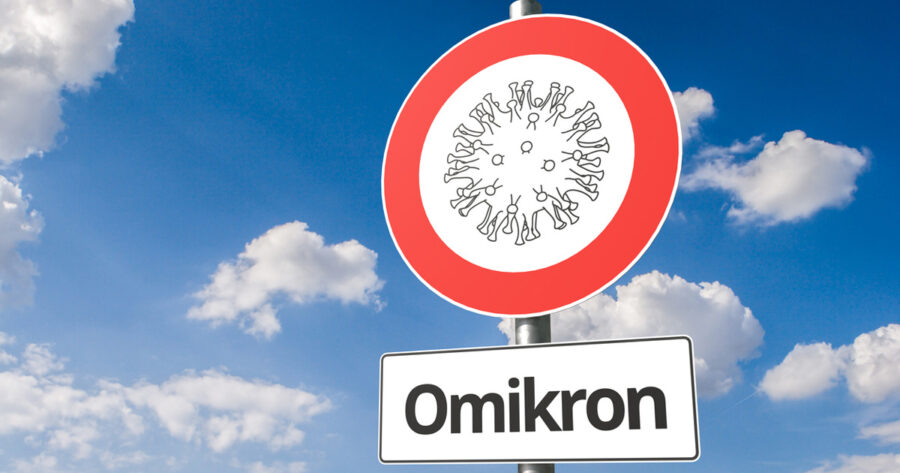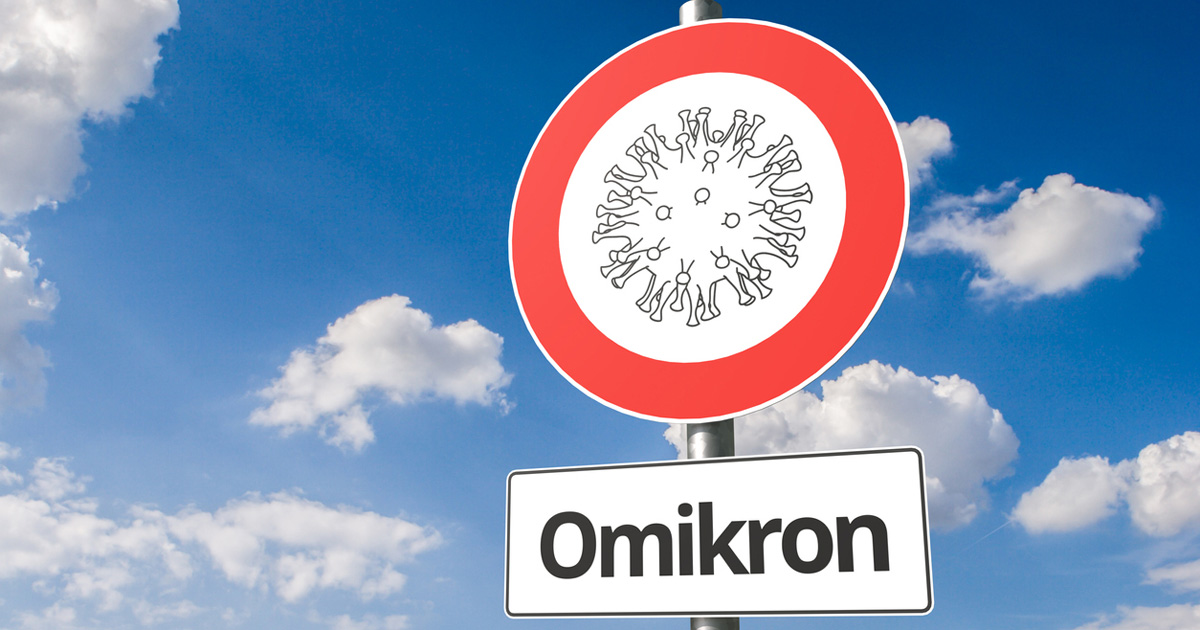
SA Microbiologist: Those Who’ve Had Covid Risk Being Reinfected by Omicron
Those who have had COVID-19 may be reinfected more easily with the new COVID-19 variant, Omicron, currently spreading across the world, according to preliminary analysis by the National Institute for Communicable Diseases (NICD) in South Africa. Scientists are noting a high rate of reinfections during the current resurgence, compared to the previous waves, Professor Anne […]

Those who have had COVID-19 may be reinfected more easily with the new COVID-19 variant, Omicron, currently spreading across the world, according to preliminary analysis by the National Institute for Communicable Diseases (NICD) in South Africa. Scientists are noting a high rate of reinfections during the current resurgence, compared to the previous waves, Professor Anne von Gottberg said at an online press conference, hosted by the World Health Organisation (WHO) today.
“Previous infection used to protect against Delta but now with Omicron that doesn’t seem to be the case,” said Von Gottberg, a Clinical Microbiologist at the NICD’s Centre for Respiratory Diseases and Meningitis, who was a panellist at the conference on Omicron and the vaccine rollout in Africa.
“Now we’re seeing an increase for Omicron, and that speaks to the fact that in our population with a high seroprevalence (number of people who test positive), where many people have had the previous infection,” she said, “we believe that previous infection does not provide them with protection from infection due to Omicron.”
The NICD and South African Centre for Epidemiological Modelling and Analysis (SACEMA) also said today in a statement that the new variant poses a threefold higher risk of reinfection than Delta and Beta.
SACEMA and the NICD said the latest findings “provide epidemiological evidence for Omicron’s ability to evade immunity from prior infection”.
Equally or less contagious than Delta
“People talk about increased transmissibility,” said Von Gottberg. “I think in this case, the virus’ characteristics may be very similar or slightly less than Delta in being able to be contagious,” she explained.
“However, it’s the susceptibility of the population that is greater now. Because previous infections used to protect against Delta (but) now with Omicron, it doesn’t seem to be the case.”
Less severe symptoms
There was good news. Von Gottberg said that she and her colleagues believe reinfections with Omicron, and breakthrough infections in vaccinated patients, would feature less severe symptoms.
While the world still knows very little about the “heavily mutated” variant, she said she hopes that a previous infection still provides them with protection against severe disease, hospital admissions and death.
The Professor called on people to get the lifesaving jabs to have vaccine-induced protection.
“We’ve seen this increase in protection using vaccines with the other variants. The vaccines have always held out to prevent severe disease and admission into hospitals and dying,” she said.
In addition, she urged people to use non-pharmaceutical interventions like wearing masks and avoiding gatherings in unventilated spaces.
Rapid Rise in COVID-19 cases in South Africa
“We were in an inter-wave period between our last third wave, which was the Delta wave. Things were very quiet and the number of cases was very low. Now they are increasing at a rapid rate and the numbers are increasing very quickly,” said the professor.
South Africa recorded more than 11,535 new cases on Thursday, as the country enters the beginning stage of the fourth wave, a sharp spike since only 312 cases ten days ago. Most of the new cases are being reported in Gauteng, “however, in all of our provinces, we are seeing an increase in percentage testing positive of all SARS-CoV-2 tests being done,” said Von Gottberg.
The Professor has also predicted that infections will peak “exponentially” in all provinces throughout the country.
75% of cases are Omicron variant in South Africa
According to Von Gottberg, of the 249 sequences from the Network for Genomic Surveillance in South Africa, 183 have been confirmed to be Omicron. This translates to about 75% of cases being the Omicron variant.
“It does look like there is a predominance of Omicron throughout the country.”
Control of COVID-19
World Health Organisation (WHO) Regional Emergency Director for Africa, Dr Salam Gueye, said the new variant was the stark reminder that the African continent needs to double down on curbing COVID-19, after more than 20 countries have reported the new variant.
According to Gueye, the detection of Omicron is believed to be behind the 54% surge in the COVID-19 infection in Africa, mostly in Southern Africa.
“We must see this window of opportunity act to certainly ramp up measure to track, detect and control the spread of the Omicron variant,” he said.
Von Gottberg also pointed out that travel bans imposed by countries on flights from South Africa were also negatively impacting the logistics of scientific research into Omicron because “there are fewer flights to choose from to bring in reagents, to bring in equipment, in addition to send out specimens…” – SAnews.gov.za and Reuters
Early data indicates the Omicron variant is similar to Delta in terms of transmissibility, or perhaps even less contagious, South African professor Anne von Gottberg has said.#COVID19 https://t.co/Ki2XBbC6Yk pic.twitter.com/5jYAt8FDOI
— Sky News (@SkyNews) December 2, 2021
